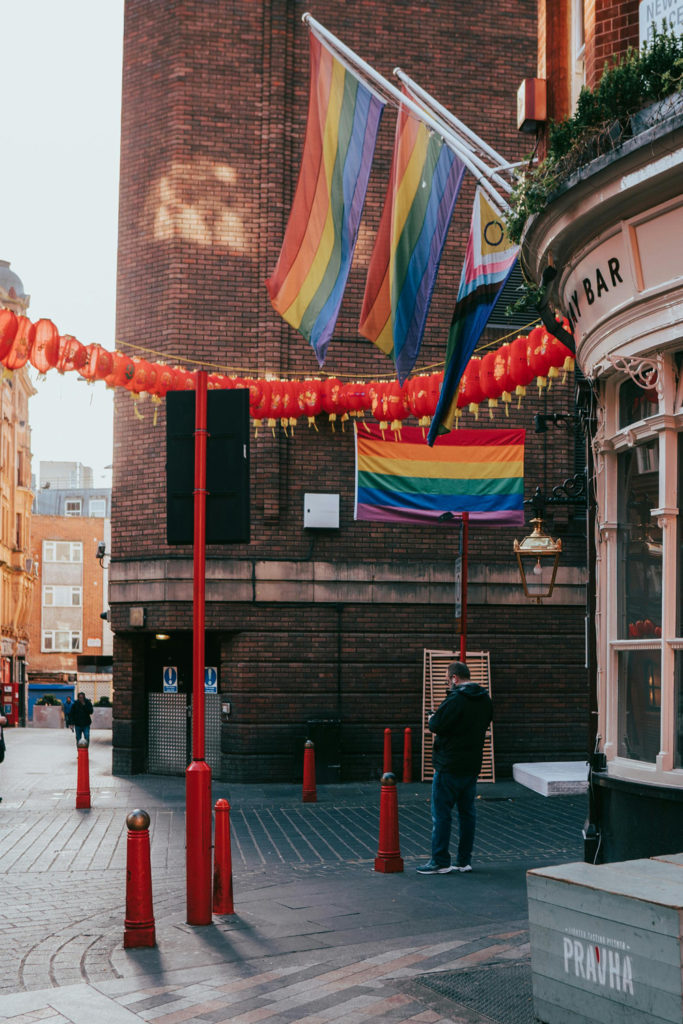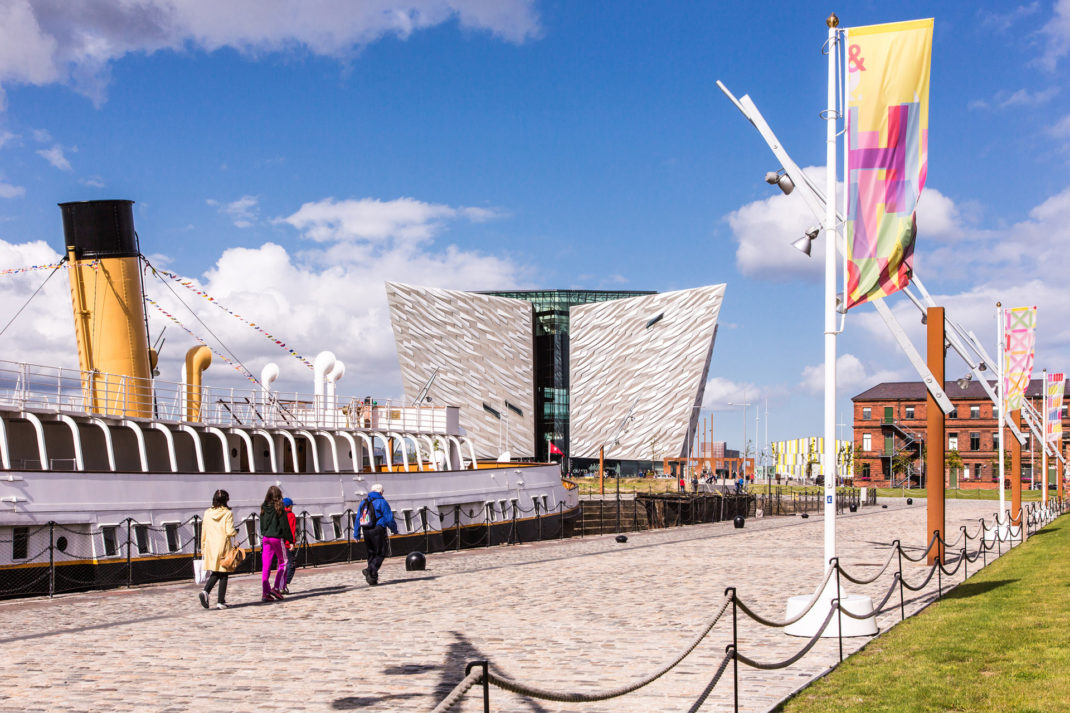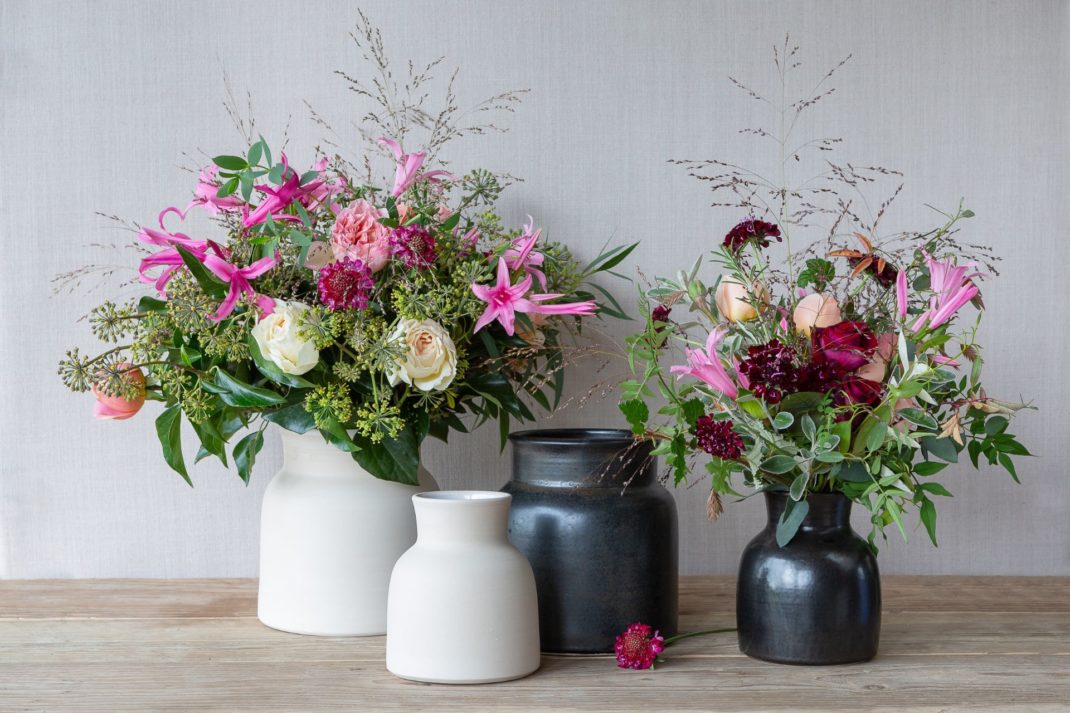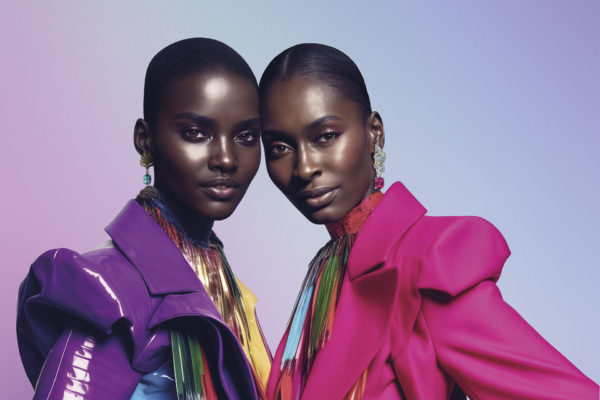Why The Future of Luxury is Sustainability
By
1 year ago
Shaping a better world for all
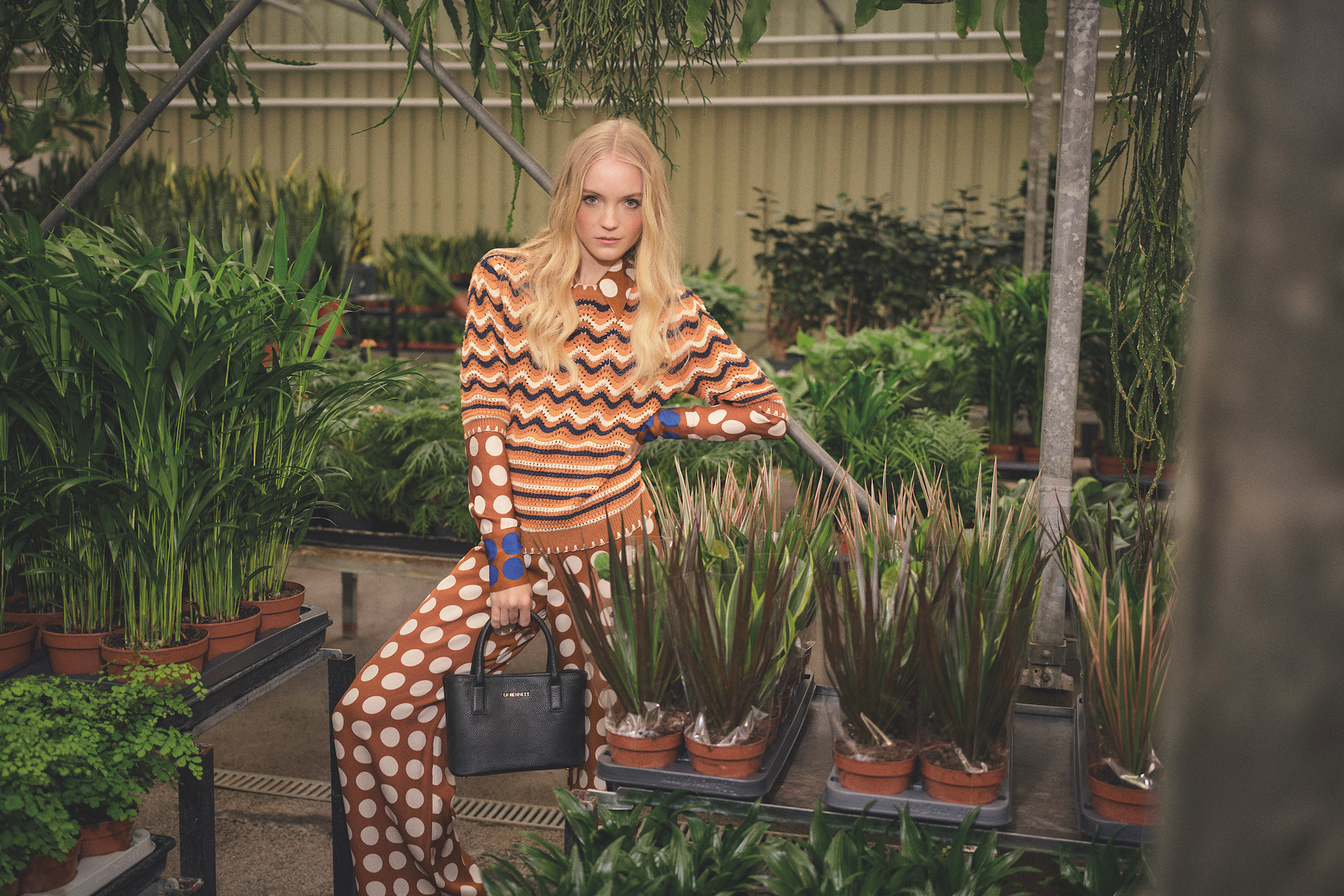
Luxury’s narrative is changing. The brands who want to survive and thrive well into the 21st century must consider how they can offer an experience that is rooted in authenticity and regeneration.
Main image: LK Bennett
This essay appeared in Great British Brands 2024. Order your copy here
The Brands Rewriting the Rules of Luxury
In 2024, climate change has transcended mere public awareness; it is now a global concern, though the intricate link between our actions and climate change remains widely misunderstood. Even for those who grasp the connection, it doesn’t always lead to smart decision-making and confidence about where and who to buy from.
The narrative of climate change has struggled to connect us for some reason. Perhaps it needs a genius marketing campaign to galvanise the societal shifts we need to see (think of the AIDS campaign of the 1980s) or a new set of vocabulary that doesn’t feel so combative and nebulous (what does net zero really mean and who are we fighting against when we talk about climate change anyway?).
Companies, too, striving for change, have found it challenging to communicate the true impact and extent of their efforts. Legislation has been slow, although the European Union has tightened regulations on green claims, producer responsibility, the right to repair and product quality in the past five years at an unprecedented rate. By 2030, comparing sustainability actions of companies will hopefully be as easy as comparing the nutritional content of sandwiches.
The changes we do manage to achieve though in the next six years will impact the next two or three generations. The effects of climate change have a prolonged feedback cycle that will take time to become apparent. To begin the process of reversing these effects, it is crucial to reach net zero as soon as possible. This will allow for a gradual reduction in atmospheric temperature and a reversal of the ocean’s pH levels from acidic to alkaline. The melting of ice that has contributed to rising sea levels will gradually slow down and solidify once more. As a result, the precipitation pattern will become more predictable and stable.
This is therefore the time to reimagine our future – and with it, luxury – because the influence and impact that the industry wields, together with that of hospitality and entertainment, can truly change the world for the better.
Luxury has faced criticism for its exclusivity, opulence, opaqueness, and wastefulness. However, the industry has been adapting and innovating to make luxury accessible to everyone. Although luxury products will still maintain their exclusivity and price point, the experience of luxury has been democratised. This is exemplified by the fact that LVMH, the world’s leading luxury goods group – which owns prestige brands such as Louis Vuitton, Moët Hennessy, Tiffany & Co., Christian Dior, Fendi and Givenchy – is sponsoring the Paris Olympic Games later this year, or that you can enjoy a cup of coffee at the Prada Caffè at Harrods, spending time with friends taking selfies in a luxurious setting.
Experiences have been high on the luxury agenda. In 2019, LVMH acquired Belmond, the travel company founded in 1976 by James Sherwood when he bought the Hotel Cipriani in Venice for £900,000. Today, Belmond is working towards reimagining the hospitality industry with 50 iconic hotels, trains and cruises, including Raymond Blanc’s world-revered Le Manoir aux Quat’Saisons in Oxfordshire, catering for the many faces of today’s luxury traveller.
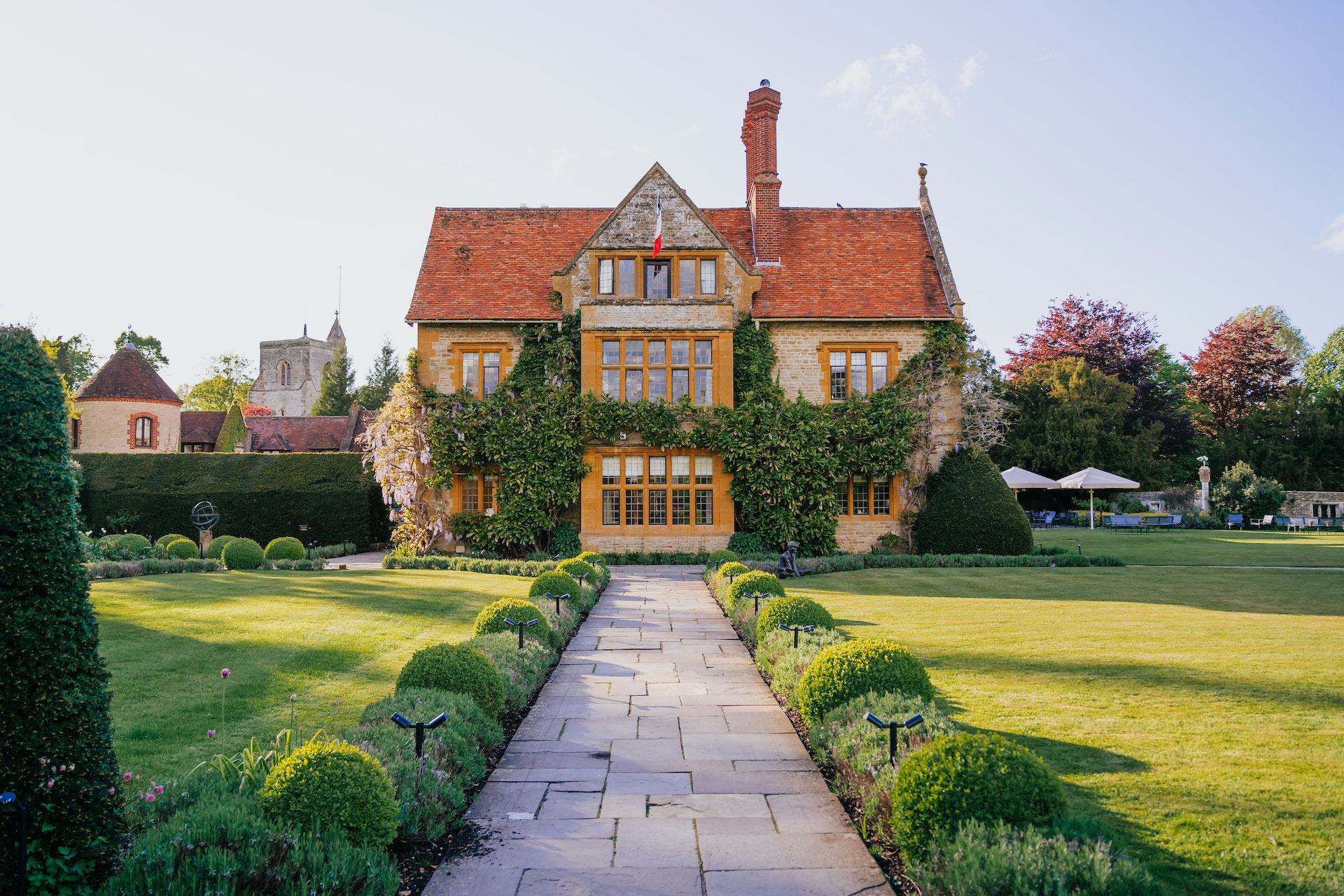
Le Manoir aux Quat’Saisons
Each property or experience is locally rooted and carefully crafted to capture the essence of the surrounding culture. As high-net-worth travellers have an appetite for experiential travel, Belmond is capitalising on this with a creative roster of experiences that have guests coming back by transcending traditional notions of luxury.
You can no longer denote something luxurious without it being sustainable or, indeed, regenerative – replenishing resources and looking after people’s wellbeing is critical to the luxury experience. At Le Manoir, for example, you can eat knowing how many of the organic ingredients are grown by fairly paid and well-cared-for staff in the very gardens outside, which themselves are part of the soul of the hotel. LVMH is investing millions in Le Manoir over the next few years to help ignite the next iteration of its existence – and it’s guaranteed that a fully sustainable approach will be at its heart, enhancing rather than compromising the guest experience.
Whatley Manor Hotel and Spa in the Cotswolds, a PoB Hotel, is also fully engaged and committed to the sustainability journey, and it is embedded into the day-to-day running of the business. ‘Sustainability is not an add-on but the way we do business,’ says Sue Williams, general manager, and she holds her team accountable for it.
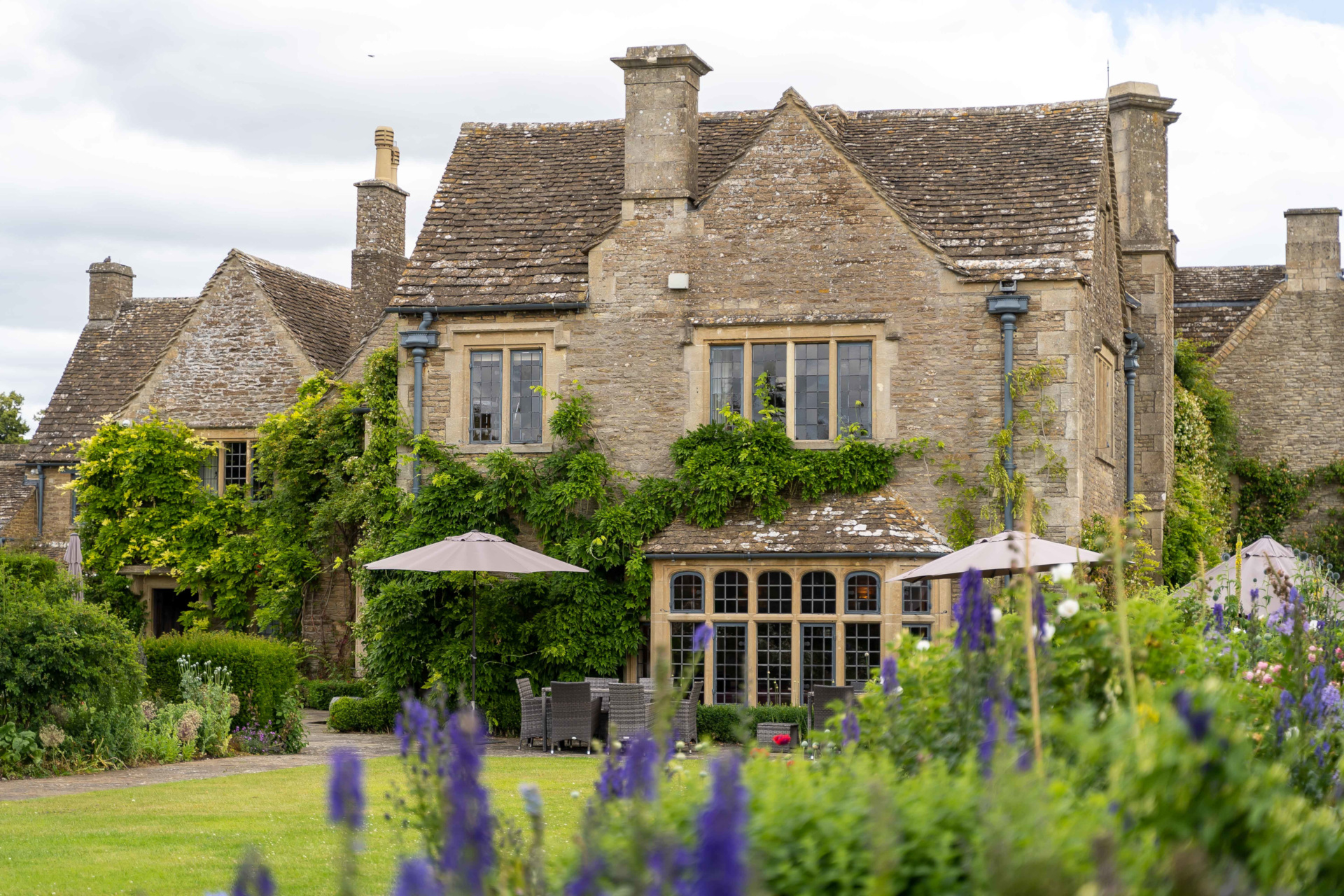
Whatley Manor
The hotel has heavily invested in becoming carbon neutral by absolute reductions in 2035 and became single-use plastic free in 2023. It works with its suppliers to accompany them on this journey, having a coherent and integrated approach up and down the supply chain without compromising the guest experience, if anything, enhancing it. This is not just its ambition but a reality to which the entire business works towards, in every department – side by side with its suppliers.
Luxury and sustainability have come to be acknowledged as two sides of the same coin. Both embody innovation and a long-term perspective, blending tradition and history with modernity and relevance. Truly luxury items and experiences are designed to endure, focusing on inspiring creativity, meticulous detail, premium materials, and crafted with a deep respect for people and our natural world.
The true reimagination of luxury, though, must lie in storytelling, which has the capacity to connect us as humans and inspire an exciting vision for a future that is equitable and sustainable, rather than succumbing to doom-and-gloom scenarios. The luxury, entertainment, and hospitality industries are uniquely positioned to lead this reimagination, given their influence, desirability, margins and aspirational positioning. By mastering the art of storytelling, they can inspire positive change grounded in respect for people and nature.
Selfridges has a rich history of leading the charge for change. Its former group sustainability officer, Daniella Vega, coined the phrase ‘buying less and buying better’, and this philosophy has earned Selfridges numerous accolades for its sustainability efforts. It made waves in 2011 with Project Ocean, a comprehensive takeover of its store that included banning the sale of endangered fish and establishing a marine reserve in the Philippines. Since then, it has continued to push the conversation forward and make bold commitments to turn the tide on plastic pollution, encouraging partners and customers alike to join it in this mission.
It is not just focused on its own products either; it supports independent designers and movements that align with its values. It launched Bright Young Things, featuring young designers and Bright Old Things, promoting positive body image. It also has an ambitious target with Project Earth to have 45 percent of transactions come from circular products or services, including resale, rental, repair, refill, and recycle, by 2030.
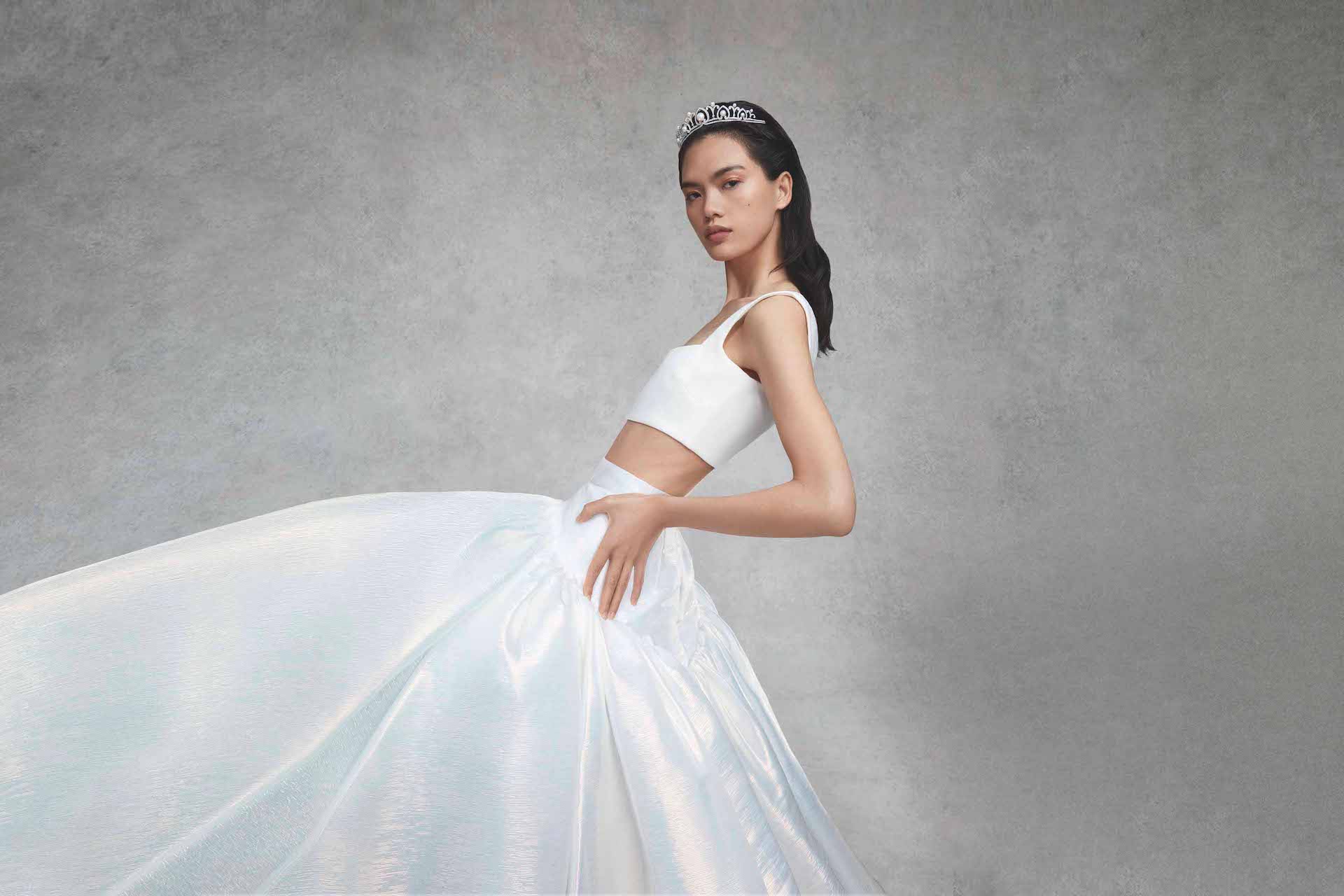
Garrard Something Borrowed jewellery rental
Today’s luxury sector is innovating on an unprecedented scale. Garrard, one of the oldest jewellery houses in the world, offers bridal rentals of its archives; Stephen Webster, one of London’s coolest jewellers, will repurpose your jewellery; LK Bennett – Butterfly Mark-certified powered by Positive Luxury – ensures that its materials are certified, from leather to wool and it is transparently communicating its efforts in not only minimising its environmental impacts but also driving positive outcomes on society.
We have an extraordinary opportunity to reimagine a world where people and nature coexist harmoniously, equality is the norm, and sustainability is the default. Change starts from within, but collaboration is the key. There’s no time to lose.
Diana Verde Nieto is the author of ‘Reimagining Luxury’ and co-founder of Positive Luxury, a sustainability organisation that helps luxury companies adapt and transition to a new climate economy.

